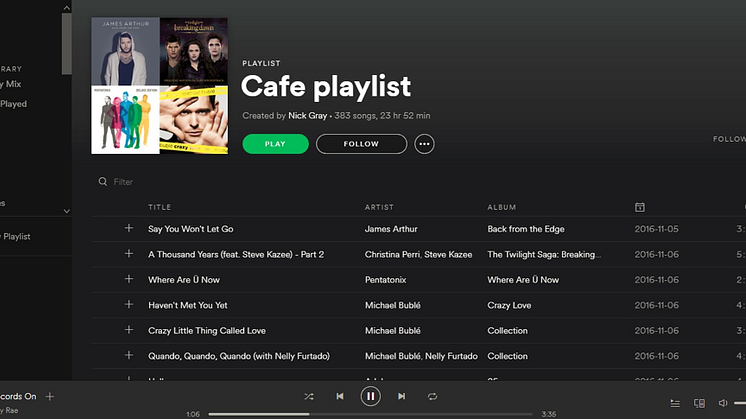
News -
Bars and venues playing unlicensed music are infringing upon the copyright of musicians
Music licensing companies are cracking down on establishments that are playing music without a proper license.
ASCAP is suing a bar in Virginia Beach for copyright infringement, and 11 other establishments in the United States for refusing to get the proper license for music.
ASCAP, which collects license fees from establishments and distributes them to songwriters, said it filed a federal lawsuit against the establishments after numerous attempts to offer a license and educate the business owners on their obligations under federal copyright law.
But the owners of these establishments repeatedly have refused to take or honor a license. Instead, ASCAP said they have continued to perform the copyrighted musical works without permission.
BMI, another music licensing company, is suing a bar in Boise for playing music without paying a fee to them. The company, whose full name is Broadcast Music Inc., is going after small businesses for alleged copyright violation. It has filed at least 33 federal lawsuits in the U.S. this year alone. The business, and others like ASCAP, make sure music copyright holders get paid royalties.
These music licensing companies hire field agents to monitor public performances. A venue playing songs without a license will be flagged. A venue that allows bands to play covers of popular songs can also be sued. Karaoke nights at bars where the songs are not cleared can also attract a lawsuit.
In fact, the music licensing companies are not just targeting bars and karaoke places. A winery in rural Nebraska has received demands of payment from one of the music licensing companies.
“When you see a patron at your business bobbing their head along to the music, you see firsthand the value music can add to any environment,” said ASCAP Executive Vice President of Licensing Stephanie Ruyle.
Ruyle said: “Music plays a key role in creating an emotional connection with customers; hundreds of thousands of businesses understand that and accept that a music license is part of the cost of doing business. Our goal is to have businesses comply with the law so that our members can be compensated for use of their work, and the establishments sued today have decided not to pay songwriters. By filing these actions, ASCAP is standing up for songwriters whose creative work brings great value to all businesses that publicly perform their music.”
The actions against copyright infringements are spreading to China, where karaoke bars are very popular.
The China Audio-Video Copyright Association (CAVCA) announced in October that told KTV operators across the country to remove 6,609 music videos from their systems due to copyright issues. The CAVCA issued a notice on its website explaining its latest crackdown on November 5, saying that KTV operators already had been ordered to take down the songs before October 31, 2018. According to Global Times on Weibo, more than 90% of the Chinese music videos used in the KTV business in China have been authorized by the CAVCA.
We have previously written about how it is illegal for cafes and retail establishments to play music from personal Spotify accounts. This causes harm to musicians who deserve to earn more from streaming services, which are notorious for their low pay-outs. Musicians are losing out on an estimated US$2.7 million every year because of this, according to a study by Nielsen Music.
As music streaming services overtake digital downloads to become the biggest source of revenue for the music industry, more musicians are depending on streaming fees for income. The industry is adapting to the new medium, such as shorter pop songs nowadays since one stream earns the same regardless of length.
Although we here at PitchMark are supporters of small businesses, we think it would be better if the small businesses in turn take care to learn about copyright and in turn support other small businesses through their actions.
Related links
- Copyright infringement lawsuit could cost Oceanfront bar thousands
- Venues Refuse to Pay Songwriters While Profiting from Their Music
- Your favorite songs to dance to may have gotten this Boise bar sued
- Live Music is Nice. But Buying Performance Licenses Could Be Nicer.
- KTVs in China Told to Remove Over 6,600 Songs
- What Streaming Music Services Pay (Updated for 2018)
- The Reason Why Your Favorite Pop Songs Are Getting Shorter

